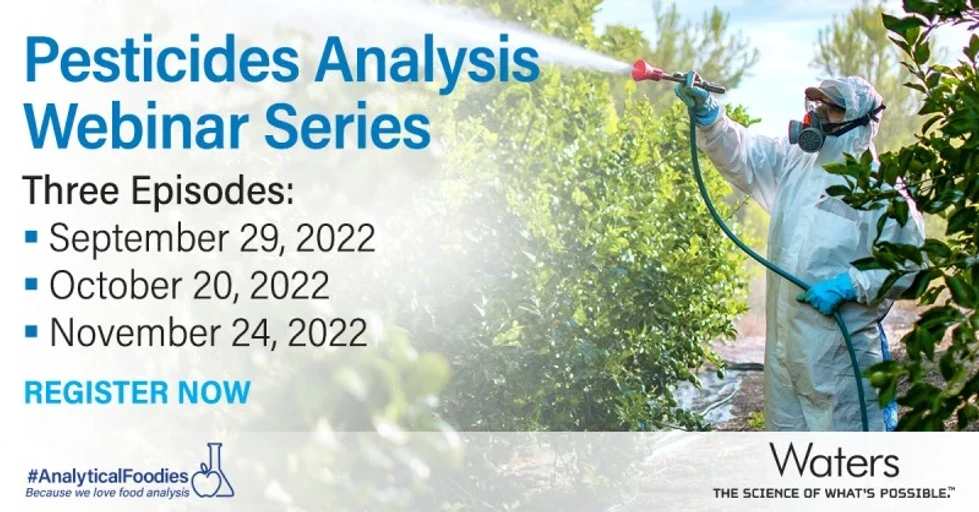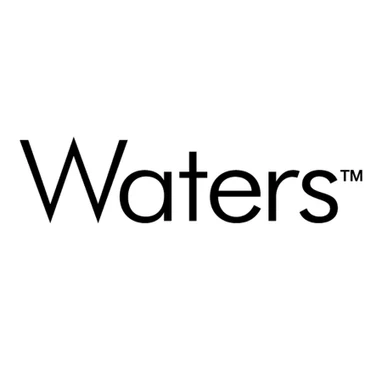APGC-MS/MS a game changer for routine pesticide analysis: Reaching new heights

As population grows, demand for food consumption and global trade in the food industry has also increased. Hundreds of pesticides are routinely used for crop protection across the globe, traces of pesticides left in treated commodities are called “residues”.
Regulation (EC) No 396/2005 sets maximum residue levels of pesticides in or on food and feed and is under constant revision as shown by the recent amendment EU 2021/155, published February 9th 2021. A growing target list of pesticides in complex matrices, and the need for low limits of detection, bring various challenges to testing laboratories.
Pesticide Thursdays - A Waters' 3-episode webinar series
Episode 2 - APGC-MS/MS a game changer for routine pesticide analysis: Reaching new heights
With the increasing demand for food and increased global supply chains there is more pressure for laboratories to operate efficient, sensitive, and selective multiresidue pesticide methods.
A growing target list of pesticides in complex matrices, and the need for low limits of detection, bring various challenges to testing laboratories. The use of GC-MS/MS utilizing atmospheric pressure gas chromatography (APGC) has been shown to offer significant improvements in performance over electron ionization (EI) for pesticide residue analysis, in terms of selectivity and specificity.
Join us for the Pesticide Thursdays webinar series and learn more about Waters turn-key solutions developed to tackle pesticide residue analysis in food and feed.
We are looking forward to discussing these topics with you.
Presenter: Wim Broer (Development and Science, Nofalab)
Presenter: Janitha de Alwis (JD) (Senior Applications Chemist, Waters Corporation)
Janitha de Alwis (known as JD) is an applications chemist in the European demo lab, based in Wilmslow, UK. His main role focuses on application development work for the food and environmental sector. JD takes great pride in speaking to, and advising, many food and environmental customers. His position requires him to be reactive and proactive to the changes in the food industry, such as, changing regulations, topical issues and food safety risks.
Presenter: Rhys Jones (Principal Consulting Scientist, Waters Corporation)
Rhys has worked for Waters in research and development for 20 years with a strong focus on gas chromatography mass spectrometry. The early part of his career was spent developing and supporting the AutoSpec magnetic sector instrument. One of his current responsibilities is the research, development and support of the atmospheric pressure gas chromatography (APGC) chemical ionization source, which has allowed the full range of Waters’ mass spectrometry techniques to be applied to GC analyses.
